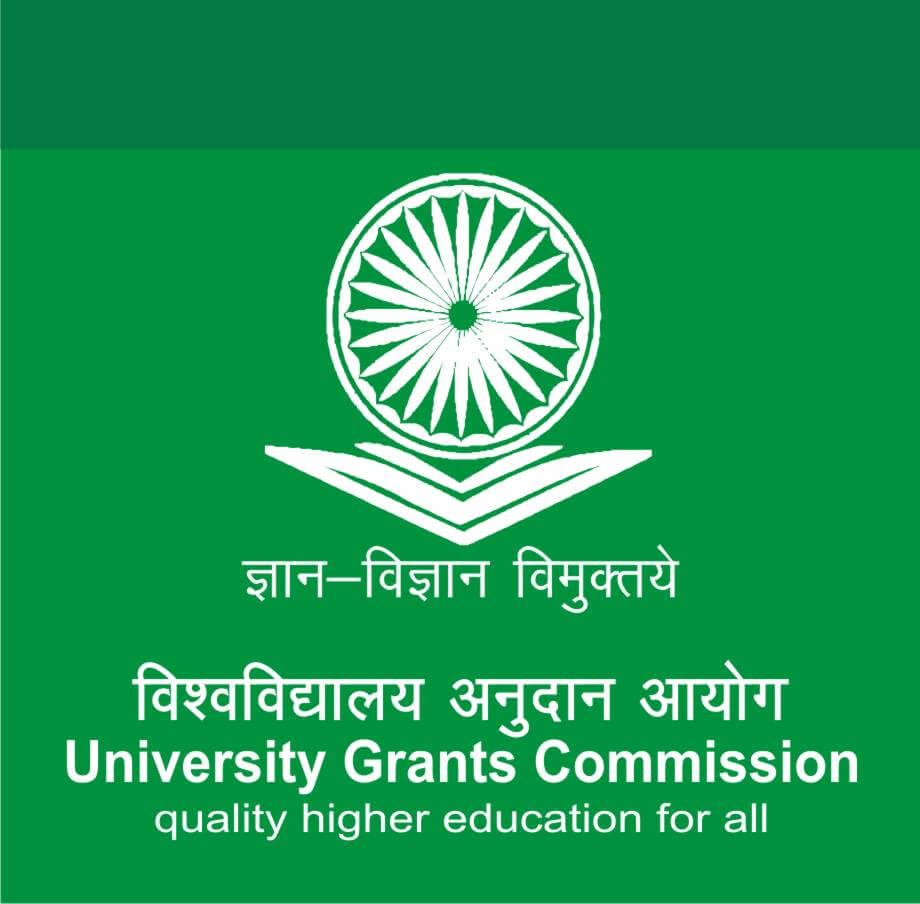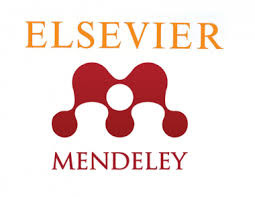INTERNATIONAL JOURNAL OF CREATIVE RESEARCH THOUGHTS - IJCRT (IJCRT.ORG)
International Peer Reviewed & Refereed Journals, Open Access Journal
IJCRT Peer-Reviewed (Refereed) Journal as Per New UGC Rules.
ISSN Approved Journal No: 2320-2882 | Impact factor: 7.97 | ESTD Year: 2013
Call For Paper - Volume 13 | Issue 11 | Month- November 2025
Scholarly open access journals, Peer-reviewed, and Refereed Journals, Impact factor 7.97 (Calculate by google scholar and Semantic Scholar | AI-Powered Research Tool) , Multidisciplinary, Monthly, Indexing in all major database & Metadata, Citation Generator, Digital Object Identifier(CrossRef DOI)
Contact Us Click Here
WhatsApp Contact Click Here
Volume 13 | Issue 11 |
| IJCRT Journal front page | IJCRT Journal Back Page |
Paper Title: A Case Report On Surgical Reconstruction Of Pilonidal Sinus (Nadi Vrana) Defects Using Rhomboid Flap
Author Name(s): Dr. Bharat K. Oza, Dr. Shweta M. Zoting, Dr. Madhavi S. Banarase
Published Paper ID: - IJCRT2511007
Register Paper ID - 295825
Publisher Journal Name: IJPUBLICATION, IJCRT
DOI Member ID: 10.6084/m9.doi.one.IJCRT2511007 and DOI : https://doi.org/10.56975/ijcrt.v13i11.295825
Author Country : Indian Author, India, 411044 , pune, 411044 , | Research Area: Health Science All Published Paper URL: http://ijcrt.org/viewfull.php?&p_id=IJCRT2511007 Published Paper PDF: download.php?file=IJCRT2511007 Published Paper PDF: http://www.ijcrt.org/papers/IJCRT2511007.pdf
Your Paper Publication Details:
Title: A CASE REPORT ON SURGICAL RECONSTRUCTION OF PILONIDAL SINUS (NADI VRANA) DEFECTS USING RHOMBOID FLAP
DOI (Digital Object Identifier) : https://doi.org/10.56975/ijcrt.v13i11.295825
Pubished in Volume: 13 | Issue: 11 | Year: November 2025
Publisher Name : IJCRT | www.ijcrt.org | ISSN : 2320-2882
Subject Area: Health Science All
Author type: Indian Author
Pubished in Volume: 13
Issue: 11
Pages: a49-a54
Year: November 2025
Downloads: 33
E-ISSN Number: 2320-2882
Abstract
Pilonidal sinus disease is a chronic granulomatous condition characterized by the presence of hair embedded within the subcutaneous tissue, leading to persistent infection and inflammation. The condition is often described as nests of hair due to its pathognomonic appearance . In classical Ayurvedic literature, Shalyaj Nadi Vrana described in the Sushruta Samhita bears a close resemblance to pilonidal sinus in both clinical presentation and management approach. Conventional surgical management typically involves excision of the sinus tract followed by primary closure however, this method carries a considerable risk of postoperative wound infection, delayed healing, and recurrence, often resulting in prolonged hospitalization . In contrast, rhomboid flap reconstruction has been shown to minimize recurrence rates and postoperative complications while enabling faster recovery and improved wound healing. This is case report of 20 years old male patient complaint of painful swelling at intergluteal cleft since 4 month and Blood stain pus discharge from lesion since 4 month with fever on& off & difficulty in sitting. Patient not given any previous history of surgical intervention. This patient underwent Rhomboid flap reconstructive procedure. Patient wound was healed primarily with minimal scarring and less postoperative pain, no flap necrosis, no seroma formation .
Licence: creative commons attribution 4.0
License
Keywords
Pilonidal sinus , Rhomboid Flap Reconstruction ,Shalyaj Nadivrana
License
Paper Title: The Impact of Globalization on the Food System-An Observation
Author Name(s): Prof. Kunta Ailaiah, Ms. Kothuru Rajakumari
Published Paper ID: - IJCRT2511006
Register Paper ID - 295805
Publisher Journal Name: IJPUBLICATION, IJCRT
DOI Member ID: 10.6084/m9.doi.one.IJCRT2511006 and DOI :
Author Country : Indian Author, India, - , -, - , | Research Area: Science and Technology Published Paper URL: http://ijcrt.org/viewfull.php?&p_id=IJCRT2511006 Published Paper PDF: download.php?file=IJCRT2511006 Published Paper PDF: http://www.ijcrt.org/papers/IJCRT2511006.pdf
Your Paper Publication Details:
Title: THE IMPACT OF GLOBALIZATION ON THE FOOD SYSTEM-AN OBSERVATION
DOI (Digital Object Identifier) :
Pubished in Volume: 13 | Issue: 11 | Year: November 2025
Publisher Name : IJCRT | www.ijcrt.org | ISSN : 2320-2882
Subject Area: Science and Technology
Author type: Indian Author
Pubished in Volume: 13
Issue: 11
Pages: a42-a48
Year: November 2025
Downloads: 16
E-ISSN Number: 2320-2882
Abstract
Globalization has brought about profound changes in various sectors, including the food system, in an increasingly interconnected world. As nations and economies become more interdependent, food production, distribution and consumption have undergone significant transformations. This paper aims to explore the multifaceted impact of globalization on the food system, shedding light on both the positive and negative consequences that have emerged. Food globalization refers to the worldwide exchange and consumption of food products, resulting in a diverse and interconnected global food market. This phenomenon has been driven by advances in transportation, communication and trade policies, allowing culinary ingredients and dishes to cross borders and cultures. Food globalization describes the worldwide distribution and sharing of food products, culinary practices and food-related knowledge. As an essential aspect of globalization, it reflects how food products and practices cross international boundaries. This process influences cultural traditions, economic dynamics and nutritional choices, impacting both producers and consumers globally. Food globalization has historical roots in ancient trade routes such as the Silk Road and the Spice Routes. These ancient pathways facilitated the exchange of spices, grains and other food items among different civilizations. Today, advancements in transportation and communication continue to accelerate the spread of food products worldwide, increasing accessibility and variety for consumers everywhere.
Licence: creative commons attribution 4.0
License
Keywords
Globalization, trade policies, phenomenon, culinary ingredients, nutritional choices.
License
Paper Title: Rethinking Air Filtration: Health Risks And Environmental Concerns Of Fiberglass-Based HEPA Filters And Advantages Of Natural Sustainable Alternatives
Author Name(s): ADARSH KUMAR, PRABHAT KUMAR
Published Paper ID: - IJCRT2511005
Register Paper ID - 295804
Publisher Journal Name: IJPUBLICATION, IJCRT
DOI Member ID: 10.6084/m9.doi.one.IJCRT2511005 and DOI : https://doi.org/10.56975/ijcrt.v13i11.295804
Author Country : Indian Author, India, 110009 , Delhi north , 110009 , | Research Area: Science and Technology Published Paper URL: http://ijcrt.org/viewfull.php?&p_id=IJCRT2511005 Published Paper PDF: download.php?file=IJCRT2511005 Published Paper PDF: http://www.ijcrt.org/papers/IJCRT2511005.pdf
Your Paper Publication Details:
Title: RETHINKING AIR FILTRATION: HEALTH RISKS AND ENVIRONMENTAL CONCERNS OF FIBERGLASS-BASED HEPA FILTERS AND ADVANTAGES OF NATURAL SUSTAINABLE ALTERNATIVES
DOI (Digital Object Identifier) : https://doi.org/10.56975/ijcrt.v13i11.295804
Pubished in Volume: 13 | Issue: 11 | Year: November 2025
Publisher Name : IJCRT | www.ijcrt.org | ISSN : 2320-2882
Subject Area: Science and Technology
Author type: Indian Author
Pubished in Volume: 13
Issue: 11
Pages: a39-a41
Year: November 2025
Downloads: 15
E-ISSN Number: 2320-2882
Abstract
HEPA (High-Efficiency Particulate Air) filters, primarily composed of borosilicate fiberglass fibers, offer high-efficiency filtration of airborne contaminants but pose latent health and environmental risks. This paper explores the potential health hazards of fiberglass particle release from HEPA filters, evidence from experimental studies and case reports associating fiberglass and silica dust with respiratory diseases like silicosis. It also addresses economic and environmental issues of cartridge disposal and replacement costs. The need for transitioning to natural fiber-based sustainable filters that offer safer, biodegradable, and cost-effective alternatives is underscored.
Licence: creative commons attribution 4.0
License
Keywords
Health Risks and Environmental Concerns of Fiberglass-Based HEPA Filters and Advantages of Natural Sustainable Alternatives
License
Paper Title: A study of the Moral Values of Adolescent Students
Author Name(s): Sonia Oscar Bombacha
Published Paper ID: - IJCRT2511004
Register Paper ID - 295700
Publisher Journal Name: IJPUBLICATION, IJCRT
DOI Member ID: 10.6084/m9.doi.one.IJCRT2511004 and DOI :
Author Country : Indian Author, India, 401201 , Vasai, Mumbai, 401201 , | Research Area: Medical Science All Published Paper URL: http://ijcrt.org/viewfull.php?&p_id=IJCRT2511004 Published Paper PDF: download.php?file=IJCRT2511004 Published Paper PDF: http://www.ijcrt.org/papers/IJCRT2511004.pdf
Your Paper Publication Details:
Title: A STUDY OF THE MORAL VALUES OF ADOLESCENT STUDENTS
DOI (Digital Object Identifier) :
Pubished in Volume: 13 | Issue: 11 | Year: November 2025
Publisher Name : IJCRT | www.ijcrt.org | ISSN : 2320-2882
Subject Area: Medical Science All
Author type: Indian Author
Pubished in Volume: 13
Issue: 11
Pages: a31-a38
Year: November 2025
Downloads: 14
E-ISSN Number: 2320-2882
Abstract
Moral values are central to shaping adolescents into ethical and responsible citizens. However, in today's rapidly changing world, exposure to social media, peer influence, and shifting family dynamics has led to increasing moral dilemmas among young learners. This study, based on Kohlberg's Theory of Moral Development, examined the moral reasoning of adolescent students with respect to grade and gender. Using a descriptive survey method, data were collected from 73 students of Grades VIII and IX through a validated rating scale aligned to Kohlberg's three levels of morality. Results revealed that students demonstrated the highest mean scores in post-conventional reasoning, followed by pre-conventional and conventional reasoning. Grade IX students showed significantly higher post-conventional reasoning than Grade VIII, reflecting developmental progression, while reliance on pre-conventional and conventional reasoning declined. Gender-wise, girls scored significantly higher at the pre-conventional level, but no significant differences were observed at the conventional and post-conventional levels. The findings highlight the importance of strengthening moral education during adolescence to nurture principled, value-driven decision-making in students.
Licence: creative commons attribution 4.0
License
Keywords
Moral Values, Adolescents, Kohlberg's Theory
License
Paper Title: Oral Disintegrating Film comprehensive review
Author Name(s): Mrunali Munindra kumbhare, Dr. Suhas Sakarkar
Published Paper ID: - IJCRT2511003
Register Paper ID - 294508
Publisher Journal Name: IJPUBLICATION, IJCRT
DOI Member ID: 10.6084/m9.doi.one.IJCRT2511003 and DOI :
Author Country : Indian Author, India, 441206 , bramhpuri , 441206 , | Research Area: Pharmacy All Published Paper URL: http://ijcrt.org/viewfull.php?&p_id=IJCRT2511003 Published Paper PDF: download.php?file=IJCRT2511003 Published Paper PDF: http://www.ijcrt.org/papers/IJCRT2511003.pdf
Your Paper Publication Details:
Title: ORAL DISINTEGRATING FILM COMPREHENSIVE REVIEW
DOI (Digital Object Identifier) :
Pubished in Volume: 13 | Issue: 11 | Year: November 2025
Publisher Name : IJCRT | www.ijcrt.org | ISSN : 2320-2882
Subject Area: Pharmacy All
Author type: Indian Author
Pubished in Volume: 13
Issue: 11
Pages: a19-a30
Year: November 2025
Downloads: 49
E-ISSN Number: 2320-2882
Abstract
Oral dissolving films (ODFs) are advanced oral dosage forms designed for application onto the buccal mucosa, offering both local and systemic therapeutic effects. These films are often preferred over conventional oral drug delivery systems due to their flexibility, ease of use, and improved patient comfort. ODFs leverage the bioadhesive properties of certain polymers, which, upon hydration, adhere to specific mucosal regions for prolonged periods. This allows them to bypass first-pass metabolism and enhance bioavailability. Additionally, they are self-administerable, cost-effective, and exhibit high patient compliance. Among the various techniques used for formulating ODFs, the solvent casting method is the most widely employed. Typically, hydrophilic polymers are combined with other excipients to create films that disintegrate rapidly, releasing the active pharmaceutical ingredients (APIs) within seconds. ODFs provide multiple advantages, including ease of access, simple administration and withdrawal, strong mucosal retention, low enzymatic degradation, cost-efficiency, and enhanced patient compliance. These attributes contribute to their growing potential for commercial and therapeutic application. This review focuses on the mechanism of action, advantages, formulation components, preparation methods, evaluation parameters, and currently marketed ODF products. It also discusses advancements in novel fast-dissolving technologies within this drug delivery platform.
Licence: creative commons attribution 4.0
License
Keywords
Solvent casting method, Rolling Method, flexible films, Compressed film based-systems, Mucoadhesive sustained release films
License
Paper Title: City Residents and Climate Change: A Study on Awareness, Knowledge and Action
Author Name(s): Rimjhim Hazarika, Dr. Sashi Kanta Saikia
Published Paper ID: - IJCRT2511002
Register Paper ID - 295289
Publisher Journal Name: IJPUBLICATION, IJCRT
DOI Member ID: 10.6084/m9.doi.one.IJCRT2511002 and DOI :
Author Country : Indian Author, India, 786001 , Dibrugarh, 786001 , | Research Area: Arts1 All Published Paper URL: http://ijcrt.org/viewfull.php?&p_id=IJCRT2511002 Published Paper PDF: download.php?file=IJCRT2511002 Published Paper PDF: http://www.ijcrt.org/papers/IJCRT2511002.pdf
Your Paper Publication Details:
Title: CITY RESIDENTS AND CLIMATE CHANGE: A STUDY ON AWARENESS, KNOWLEDGE AND ACTION
DOI (Digital Object Identifier) :
Pubished in Volume: 13 | Issue: 11 | Year: November 2025
Publisher Name : IJCRT | www.ijcrt.org | ISSN : 2320-2882
Subject Area: Arts1 All
Author type: Indian Author
Pubished in Volume: 13
Issue: 11
Pages: a13-a18
Year: November 2025
Downloads: 30
E-ISSN Number: 2320-2882
Abstract
As urban centers continue to experience the direct and indirect impacts of climate change, understanding how city residents perceive and respond to these challenges is crucial for effective policy and community engagement. This study explores the levels of awareness, knowledge and climate-related actions among residents in selected municipal areas of Dibrugarh city. A random sampling method is used to collect information through a semi-structured interview schedule. Findings reveal a significant gap between climate change awareness and actionable knowledge with socio-economic status, education level. The study highlights the need for targeted communication strategies, community-based programs and inclusive urban policies to bridge the gap between concern and action. These insights are essential for fostering resilient urban communities capable of responding effectively to climate challenges.
Licence: creative commons attribution 4.0
License
Keywords
City residents, climate change, awareness, knowledge action
License
Paper Title: Seismic Analysis of Multi-Storey Building With Shear Wall and Floating Columns
Author Name(s): VELETI PREM KUMAR, Dr. K. Manjulavani
Published Paper ID: - IJCRT2511001
Register Paper ID - 295970
Publisher Journal Name: IJPUBLICATION, IJCRT
DOI Member ID: 10.6084/m9.doi.one.IJCRT2511001 and DOI :
Author Country : Indian Author, India, 507301 , bhadradri kothagudem, 507301 , | Research Area: Science and Technology Published Paper URL: http://ijcrt.org/viewfull.php?&p_id=IJCRT2511001 Published Paper PDF: download.php?file=IJCRT2511001 Published Paper PDF: http://www.ijcrt.org/papers/IJCRT2511001.pdf
Your Paper Publication Details:
Title: SEISMIC ANALYSIS OF MULTI-STOREY BUILDING WITH SHEAR WALL AND FLOATING COLUMNS
DOI (Digital Object Identifier) :
Pubished in Volume: 13 | Issue: 11 | Year: November 2025
Publisher Name : IJCRT | www.ijcrt.org | ISSN : 2320-2882
Subject Area: Science and Technology
Author type: Indian Author
Pubished in Volume: 13
Issue: 11
Pages: a1-a12
Year: November 2025
Downloads: 27
E-ISSN Number: 2320-2882
Abstract
Earthquakes are natural phenomena that generate intense ground motions, which can adversely impact structural systems. While mild tremors may not be perceptible to humans, stronger ones can cause serious structural damage. Shear walls are introduced in buildings to improve lateral stiffness, enhance ductility, minimise lateral displacements, and increase overall structural safety in seismic design. Controlling storey drift and lateral displacement is essential. Shear walls, which are vertical reinforced concrete (RC) elements extending from the foundation upwards, play a key role in resisting lateral seismic forces and limiting storey displacements. However, enclosing a building entirely with shear walls may negatively affect its architectural appearance. As a result, shear walls are typically positioned at selected locations, such as the sides or corners. In low-rise structures, bracing systems may be an option, but these are often unsuitable for taller buildings.
Licence: creative commons attribution 4.0
License
Keywords
Shear walls, lateral displacement, story drift, story shear, story bending, response spectrum, time history analysis.
License
Paper Title: FINTECH CRIMES AND INDIAN LEGAL RESPONSES: A CRITICAL EXAMINATION
Author Name(s): Aabha Singh, Dr. Ranjana Sharma
Published Paper ID: - IJCRT21X0365
Register Paper ID - 295931
Publisher Journal Name: IJPUBLICATION, IJCRT
DOI Member ID: 10.6084/m9.doi.one.IJCRT21X0365 and DOI :
Author Country : Indian Author, India, - , -, - , | Research Area: Science and Technology Published Paper URL: http://ijcrt.org/viewfull.php?&p_id=IJCRT21X0365 Published Paper PDF: download.php?file=IJCRT21X0365 Published Paper PDF: http://www.ijcrt.org/papers/IJCRT21X0365.pdf
Your Paper Publication Details:
Title: FINTECH CRIMES AND INDIAN LEGAL RESPONSES: A CRITICAL EXAMINATION
DOI (Digital Object Identifier) :
Pubished in Volume: 13 | Issue: 11 | Year: November 2025
Publisher Name : IJCRT | www.ijcrt.org | ISSN : 2320-2882
Subject Area: Science and Technology
Author type: Indian Author
Pubished in Volume: 13
Issue: 11
Pages: u165-u205
Year: November 2025
Downloads: 17
E-ISSN Number: 2320-2882
Abstract
Fintech driven financial services in India have created a payments environment that is instant, interoperable, API based, and deeply embedded in everyday economic activity. Unified Payments Interface volumes, NPCI rails for IMPS, AePS, FASTag, and QR based collections, together with smartphone penetration, have produced a payment layer in which value moves at a speed that legacy banking controls did not anticipate. This speed has carried a parallel surge in frauds and techno economic crimes such as social engineering-based UPI authorisations, card not present misuse routed through merchant accounts, identity theft to open mule accounts, pig butchering through unregistered apps, unauthorised digital lending with coercive recovery, and cross border laundering of virtual digital assets through exchanges that fall outside Indian supervision. RBI, MeitY, FIU IND, ED, CERT In and NPCI have responded with overlapping standards, for instance the 2017 customer liability circular, the 2019 turnaround time framework, the 2022 CERT In six hour reporting requirement, the 2023 and 2024 amendments to the IT Intermediary Rules, the 2022 RBI digital lending guidelines, and the DPDP Act 2023 obligations for data fiduciaries including financial sector entities, yet offenders continue to exploit jurisdictional gaps, inconsistent attribution of liability, long investigation cycles under the BNSS 2023, and the absence of a unified fintech crime code. The problem is aggravated by the emergence of VDA service providers that came under PMLA only in March 2023 and that continue to receive show cause and penalty actions for non-compliance in 2024 and 2025, which confirms that AML controls have not travelled at the same pace as fintech innovation in India. A critical analysis of these laws shows that the legal tools exist, from "Section 66C" and "Section 66D of the Information Technology Act, 2000" to "Section 43A" civil compensation, from "Section 13 of the Prevention of Money Laundering Act, 2002" to "Section 318 of the Bharatiya Nyaya Sanhita, 2023", but they are fragmented across regulators, triggered on different thresholds, and often written for a pre-UPI environment. The present legal research study therefore argues for a tighter articulation of fintech crime categories, a harmonised attribution of loss and restitution across RBI and NPCI rails, stronger data protection overlays for fintech lenders, and a policing procedure that preserves electronic evidence in a manner that meets BSA and BNSS requirements for trial. It also points toward the growing role of self-regulatory organisations in fintech under the RBI's 2024 framework as a bridge between rule writing and day to day market behaviour, especially for merchant monitoring, LSP governance, and API security.
Licence: creative commons attribution 4.0
License
Keywords
Fintech crime; digital payments; UPI fraud; PMLA; IT Act; DPDP Act; digital lending; payment aggregators; intermediary liability; electronic evidence
License
November 2025
Volume 13 | Issue 11
Last Date :
30-Nov-2025
Submit Manuscript Online Impact Factor: 7.97 Review Results : Within 02-03 Days Paper Publication : Within 02-03 Days

ISSN: 2320-2882 Impact Factor: 7.97 and ISSN APPROVED Journal Starting Year (ESTD) : 2013

ISSN: 2320-2882 Impact Factor: 7.97 and ISSN APPROVED Journal Starting Year (ESTD) : 2013

CONFERENCE PROPOSAL CONFERENCE PROCEEDINGS







































































